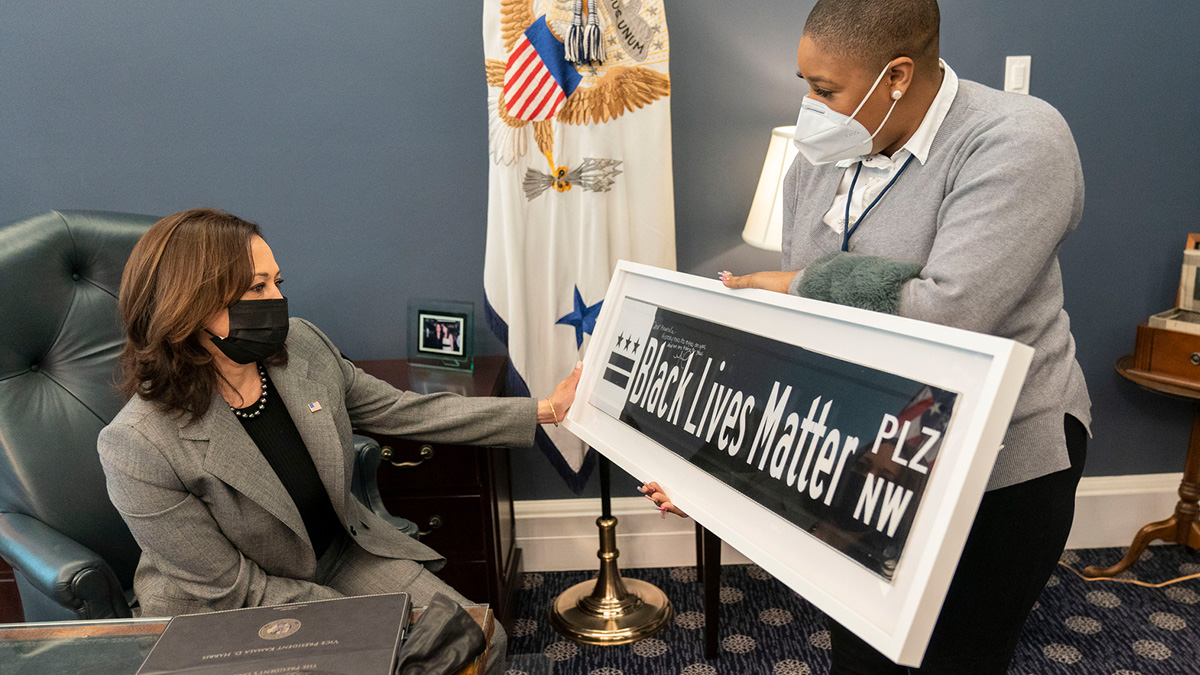President Biden is returning to the Barack Obama playbook of “reforming” municipal police departments by forcing multi-year federal court “consent decrees” down their throats — a strategy that makes it extremely difficult for those departments to hire and retain good officers, or to administer their agencies in accord with the needs of the communities they serve.
Of course, as with everything being undertaken by this Administration, it is all about race and politics, not good policing. Police departments in Minneapolis and Louisville are but the latest recipients of this federal intervention.
It is noteworthy, though not often noted, that both of these cities have been under Democrat Party control for more than three-quarters of a century. One reason why left-wing propagandists, such as Black Lives Matter and the mainstream media fail to note this anomaly, is that it invites the uncomfortable question of how, with Democrats at the helm of these cities for so long, police departments under their purview descended into the alleged hotbed of systemic racism that now warrants federal oversight by the notoriously heavy-handed Civil Rights Division at the Department of Justice.
A key question that should be asked, but of course is not, is what precisely is to be accomplished by Democrat bureaucrats in Washington, D.C. that has not been possible for Democrats locally across nearly eight decades of control. CARTOONS | AF BRANCOVIEW CARTOON
Investigating and prosecuting real cases of alleged civil rights violations by police officers is a legitimate focus for the Department of Justice, especially in cases for which there is no adequate prosecution by state authorities. Were this the sole focus by the Civil Rights Division, it might constitute an appropriate use of federal law and resources. However, this Administration, just as the Obama Administration before it, instead looks to deploy federal resources as a bludgeon with which to publicly humiliate police as a whole, rather than as a scalpel to delicately remove those few bad apples.
Here is how the scam works. The Justice Department opens a civil rights investigation into a local police department on the pretext that its officers “target” young black men or some other identifiable category. It always is relatively easy to find some “evidence” of civil rights issues on which to file a lawsuit in federal court against the local police department. Justice Department lawyers then leverage that potentially lengthy and costly proceeding to force local departments to consent to legally binding court decrees that place them under federal control for years, in some cases 10 years or more.
Such consent decrees rob local police chiefs and elected city officials of the ability to establish and administer hiring and training programs, and to set priorities that meet the needs of the communities they serve, as opposed to priorities deemed worthy by lawyer-bureaucrats in Washington. With federal monitors looking over the shoulder of every officer in such departments, it is no wonder that individual officers back away from proactive policing and that the departments receive fewer qualified applicants and suffer higher rates of retirement.
What do citizens get for all of this — police departments with fewer and less well-trained officers, whose performance is measured not by local needs, but by the “woke” standards mandated by liberal lawyers and bureaucrats far away in the nation’s capital. Any true reforms that might result from such programs move at the glacial pace favored by bureaucrats not subject to local voters, and whose ultimate goal is to maintain control and their respective budgets as long as possible.
This is nothing more than a charade so Democrats in D.C. can make it look like they are taking action to cover decades of failures by local Democrats in city leadership.
Yes, there are problems in America’s law enforcement, and as entities populated by real, fallible human beings, there always will be. However, employing bureaucratically conceived and driven national templates to “solve” deeply complex problems between diverse communities and police, is both foolhardy and ultimately dangerous.
Any meaningful effort to resolve today’s problems in community policing must focus on core fiscal, cultural, and social issues, employing solutions founded on local needs and concerns rather than performative Beltway meddling. In other words, exactly what this Administration does not want.























